Cassava ( Yuca, Manioc) is grown very much in Vietnam, the Cassava leaves are the primary material for producing Frozen Cassava Leaves.
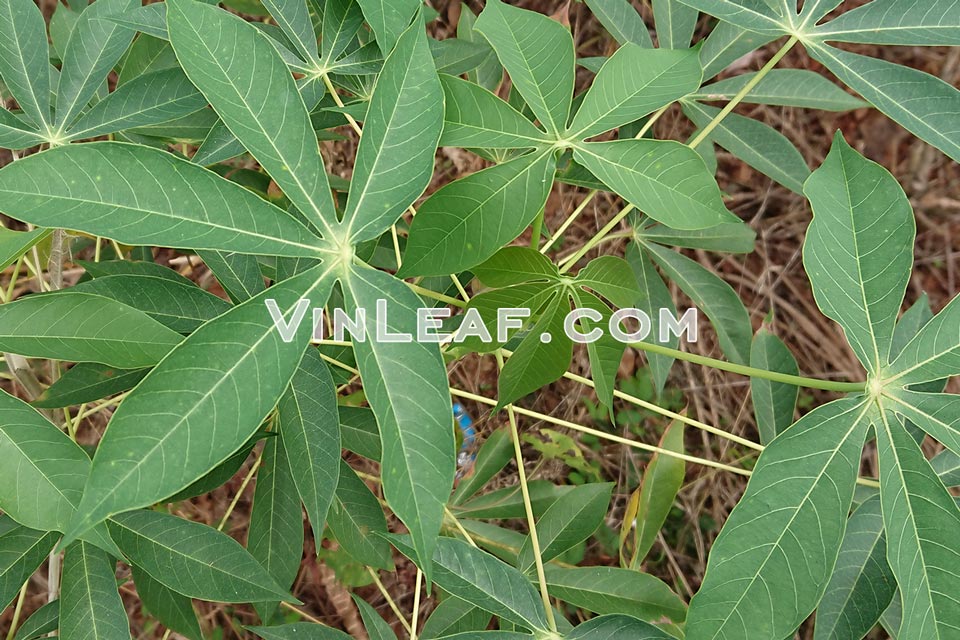
The Cassava Leaves is a popular vegetable used all over the world. They have many nutrients such as: vitamins A, B, iron, calcium, copper, magnesium … However, the leaves contain cyanide, you should be boiled in time about 10 minutes before eating. Depending on the region, the cassava leaves are used for cooking soup, frying or boiling.
Planting cassava in Vietnam
In Vietnam, the area of planting cassava reached 551.30 thousand hectares (in 2014) , producing a fresh around 19 tonnes/ha, production of 10.2 million tonnes. South-eastern Vietnam is the largest growing Cassava of Vietnam and it also supply fresh cassava leaves to Frozen Cassava Leaves suppliers
The Frozen Cassava Leaves production process
After harvesting and moving to the factory, cassava leaves are removed stem, washed and minced. Depending on customers’ requirements, ground cassava leaves will be packed into blocks or balls of different weights. Finally, the package will be frozen and exported.

At farms ( Figure 2) , workers will pick leaves, remove stem of leaves and then they put them in the truck. Leaves will be harvested between 4 and 6 am because harvesting during this time will ensure that leaves do not wilt and retain nutrients.
In the factory, workers remove bad leaves again and put them into big basket (Figure 3).
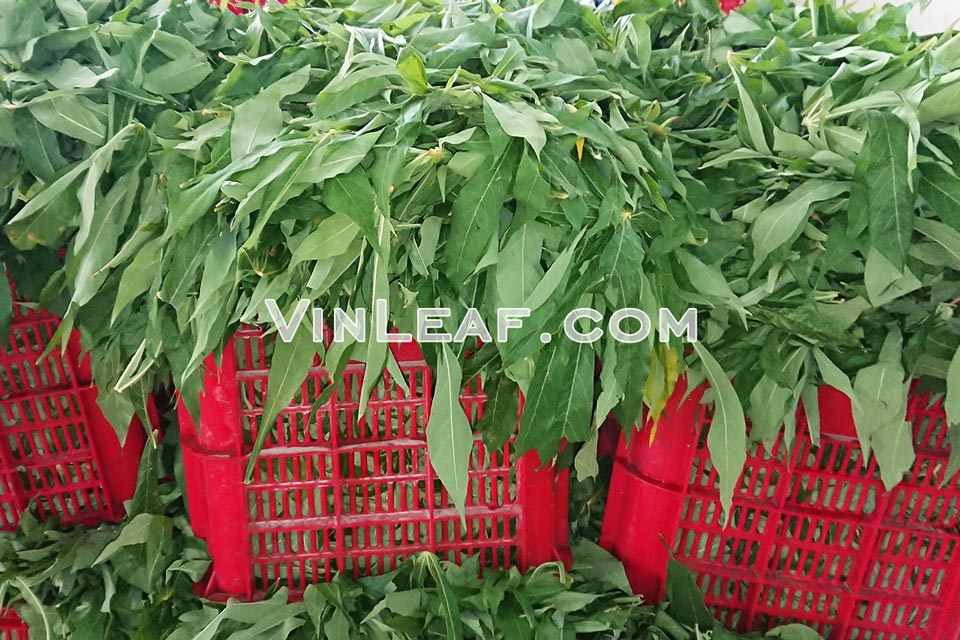
The leaves are soaked in water and washed several times with clean water, then they are moved to the blender machine area (Figure 4, 5 )
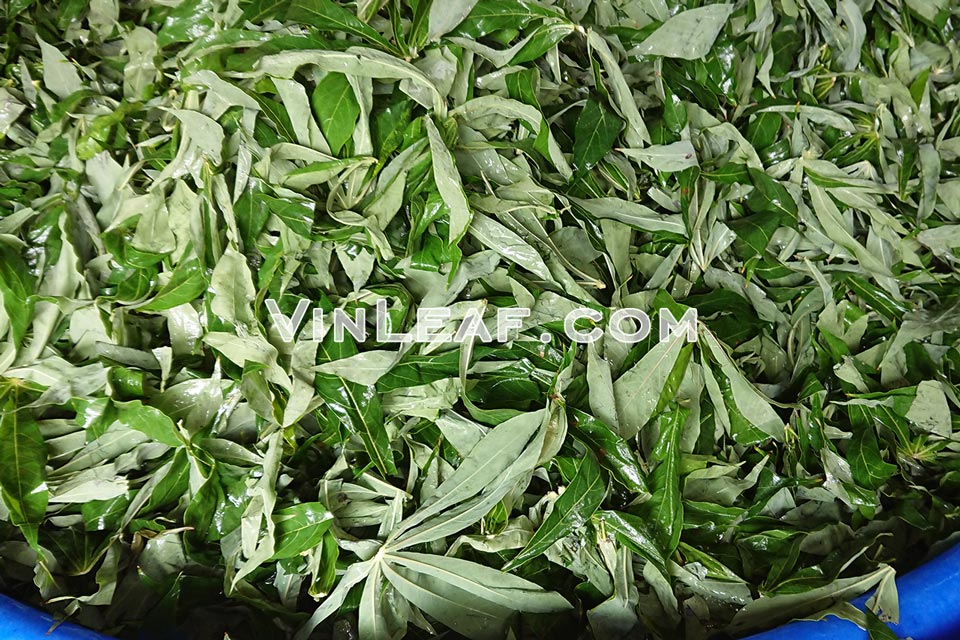
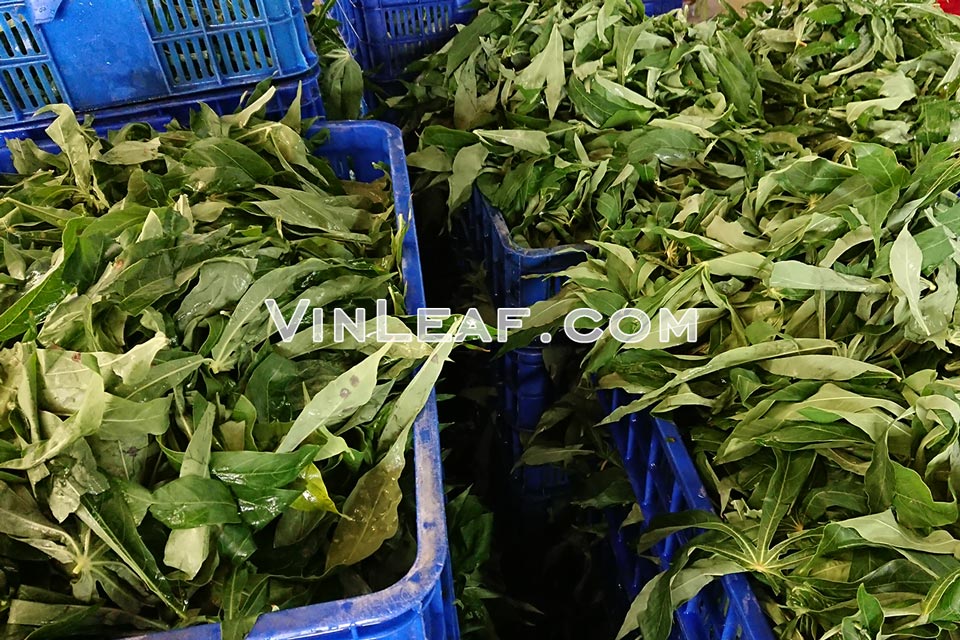
At the request of customer, leaves will be minced with different time and size, the leaves are usually minced with a size of about 2-3 mm (Figure 6, 7)
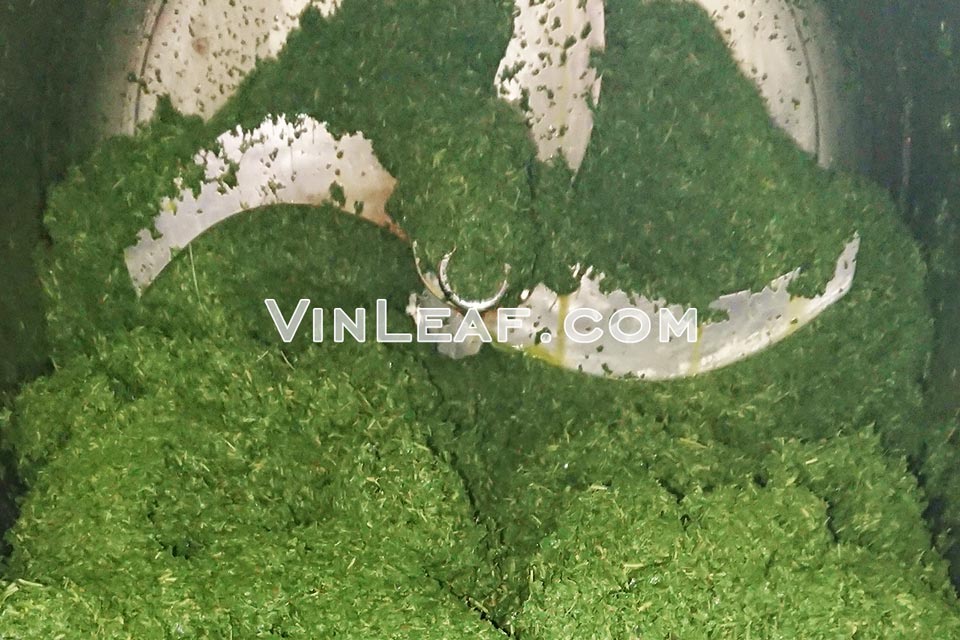
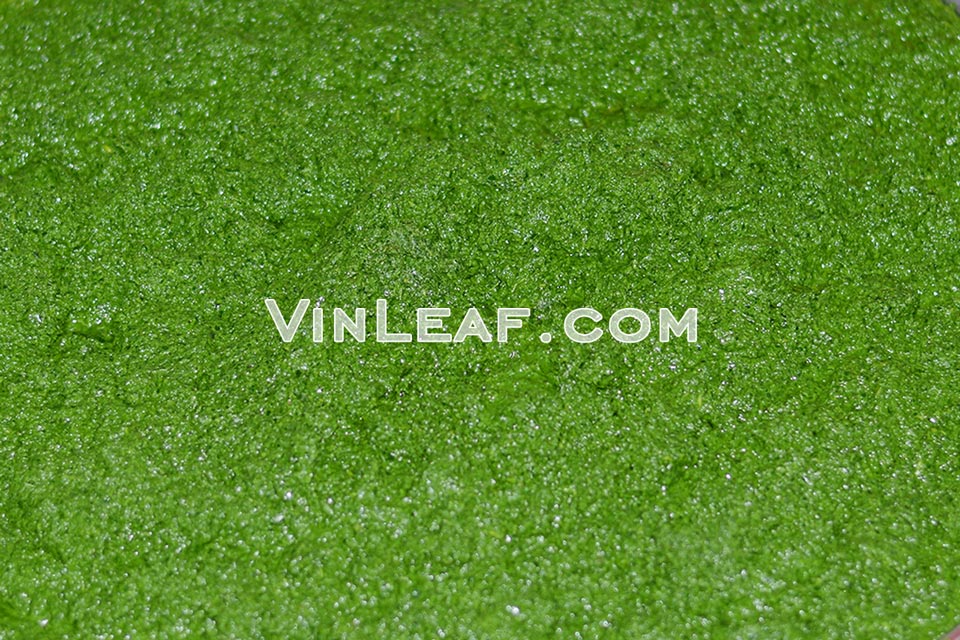
Ground Cassava Leaves are packed into different forms (block, ball) with different sizes like 500g, 1kg, 1lbs. 2lbs, 3lbs … (Figure 8, 9)
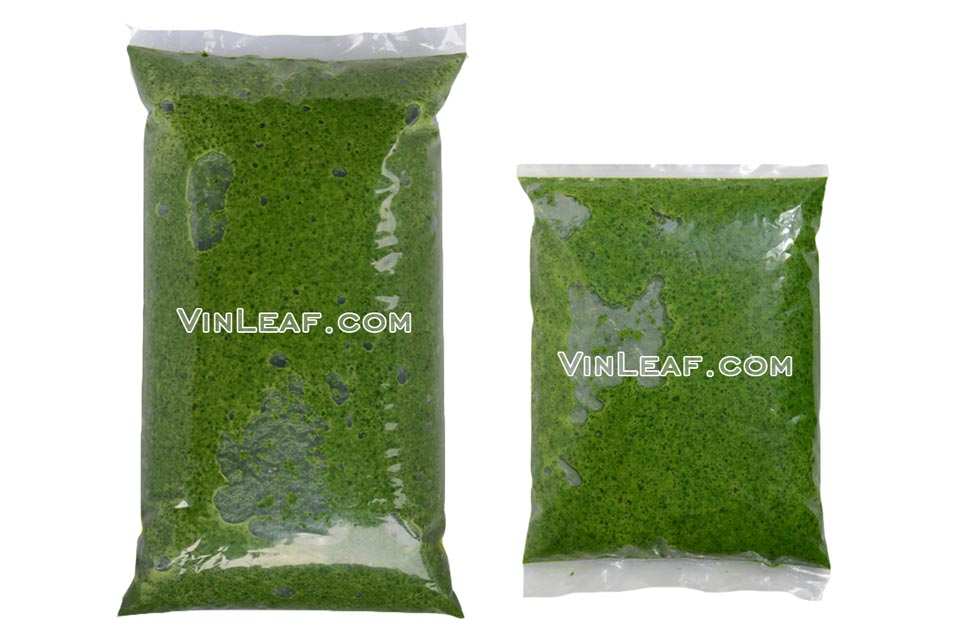
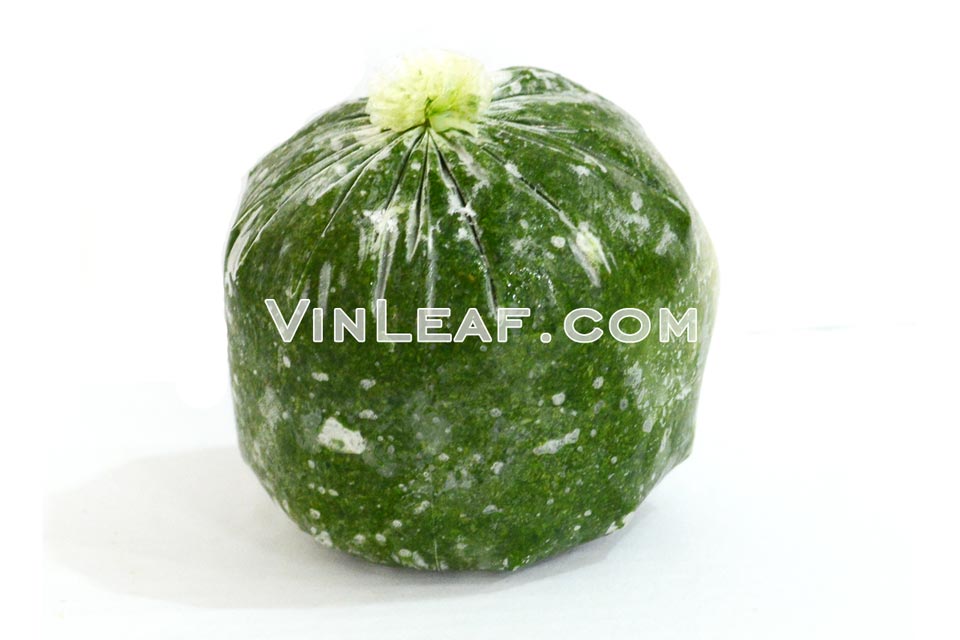
They will be frozen at a temperature of – 40 to – 35 degrees Celsius (Figure 10, 11)

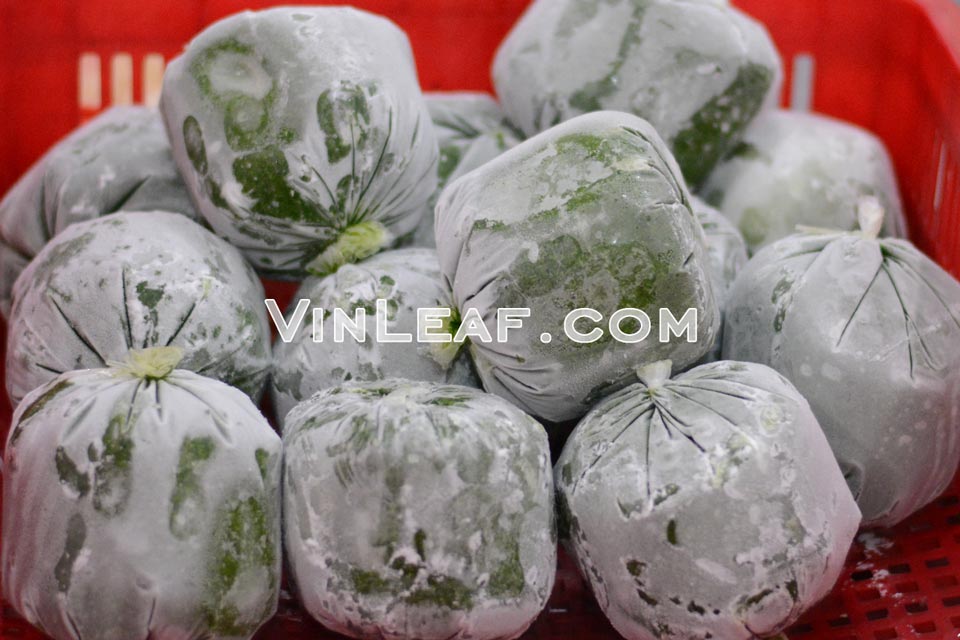
Frozen Cassava Leaves have a shelf life of 24 months, if they are stored at -18 degrees Celsius.
As well as frozen cassava root, cassava leaves contain cyanide, these frozen cassava leaves will be analysed for total cyanide content from the raw material and always ensure that cyanide content is safe for consumers. After packaging, these products will be delivered to customers.
One Response